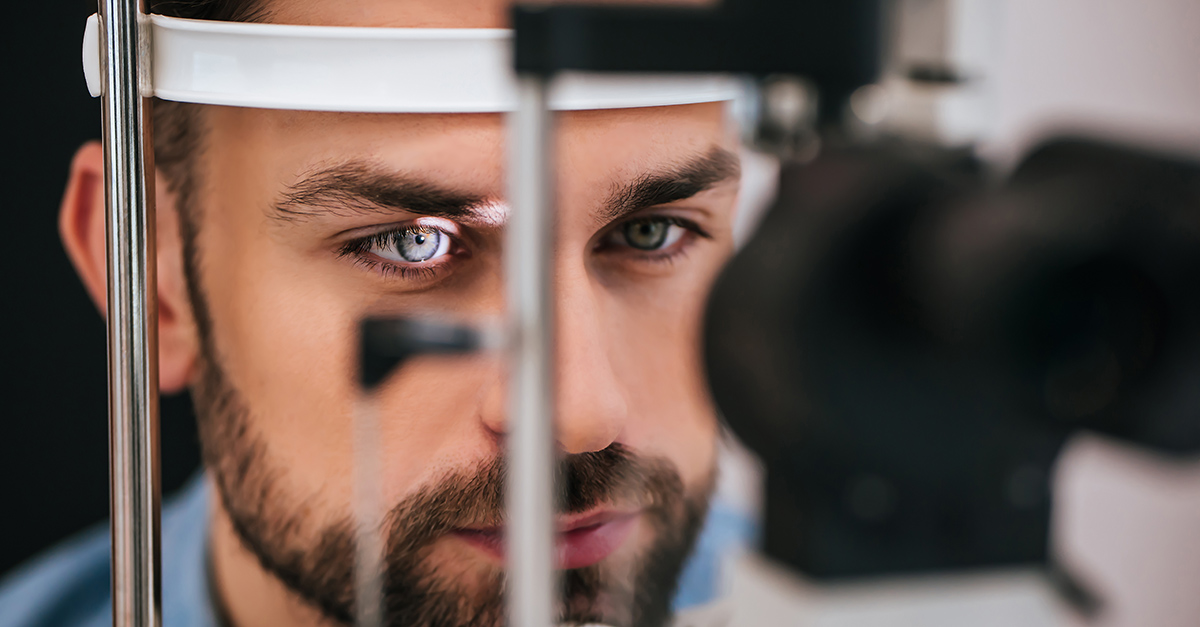How Is Glaucoma Diagnosed?

What Is Glaucoma?
There are different varieties of glaucoma, all of which involve a build-up of pressure inside the eye. Elevated eye pressure causes damage to the optic nerve, and if left untreated, the result is impaired vision and eventual blindness. Primary open-angle glaucoma is by far the most common form of glaucoma. The condition is painless and develops slowly without symptoms. Most people who have it are unaware that they are being robbed of their eyesight because the vision loss is so gradual. There are no warning signs, only irreversible damage to the optic nerve by the time vision problems are noticed. Acute angle-closure glaucoma, on the other hand, appears suddenly with severe pain and sharply reduced vision. It is often accompanied by nausea and vomiting, and an urgent visit is usually required to relieve the pressure and prevent further damage to the eye.
Who Is at Risk of Glaucoma?
As mentioned earlier, people over 40 are at higher risk of developing glaucoma. Other risk factors include those who:
- have family members with glaucoma
- are of African, Hispanic, or Asian heritage
- have high eye pressure
- are farsighted or nearsighted
- have had an eye injury
- use long-term steroid medications
- have corneas that are thin in the center
- have thinning of the optic nerve
- have diabetes, migraines, high blood pressure, poor blood circulation, or other health problems affecting the whole body
How Is Glaucoma Diagnosed?
Only an ophthalmologist can diagnose glaucoma. To start, specialty instruments are used to accurately measure the eye’s intraocular pressure (IOP), after which drops are placed to dilate the eyes in order to visually inspect the health of the optic nerves.
Advanced imaging technology with Ocular Coherence Tomography (OCT) is available to help objectively assess the nerves and determine glaucoma risk. Additionally, visual field testing is performed as part of a complete glaucoma evaluation when indicated. If the diagnosis of glaucoma is confirmed, treatment generally begins immediately.
Related: What Can I Do to Prevent Glaucoma?
Early Detection and Treatment of Glaucoma
When detected early, glaucoma and cataracts may be surgically treated to prevent further damage. The only defense against glaucoma is early screening as part of a regular eye examination, especially recommended for people over 40. Fortunately, almost all vision loss due to glaucoma can be prevented if the disease is detected early and treated with specially prescribed medications. Glaucoma treatment in Tampa with Florida Eye Center will help slow or repair damage.
To schedule a consultation with an ophthalmologist in Tampa at the Florida Eye Center, please request an appointment today.
Disclaimer: The contents of this website are for general educational purposes only. All content and media on the Florida Eye Center website does not constitute professional medical advice nor is the information intended to replace the services provided by the medical professionals at Florida Eye Center or other qualified medical professionals. If you believe you are having a medical emergency, call 911 immediately.
The content, views, and opinions communicated on this website do not represent the views of Florida Eye Center. Reliance on any information provided by this website is solely at your own risk. Although this website contains links to other medical websites, this is strictly for informational purposes. Florida Eye Center is not responsible nor do they approve of the content featured on any third party linked websites referenced on this website.
Additional Resources
To request an appointment, please access the form below or contact our office at (813) 972-4444. While we do our best to accommodate your request, appointment requests made through our website are not guaranteed until confirmed by our office. If this is an emergency, please call 911.

